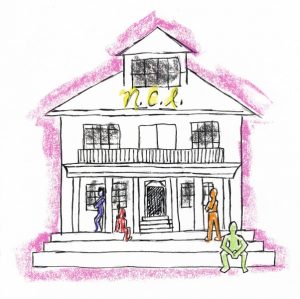NCI Lawsuit could spark introspective conversation for Tulane
February 7, 2019

Last semester, I frantically refreshed my Gibson Portal until my registration opened. Clicking “submit,” I enrolled in a political science class titled “Women and Public Policy.” A discussion-based seminar, the class explores the way policy intersects with gender to impact the lives of everyday citizens.
Needless to say, I was pumped. As the class continued throughout the semester and my fellow peers began to discuss their own perspectives, I came to realize we shared many of the same-lived experiences. Although I learned a valuable lesson connecting with my peers, I felt a dynamic of diversity and identities missing from our conversation. There seemed to be a great learning discrepancy: how could we have a meaningful discussion about gender without having people of all genders at the table?
The debate surrounding the recent Title IX investigation into the Newcomb College Institute’s programming is no stranger to such discrepancies. This winter, Tulane University entered an agreement with the United States Department of Education in which the NCI pledged to prevent discrimination in financial assistance and other campus opportunities to men on Tulane’s campus. The change was met with great shock considering Newcomb’s longtime mission to “empower women by integrating teaching, research, and community engagement at Tulane.”
As a recipient of several Newcomb grants and a student involved in several Newcomb organizations myself, I had the opportunity to sit in multiple circles where my peers expressed their dissatisfaction regarding Tulane’s compliance with Title IX standards. “I feel that [Tulane’s resolution with the DOE] ends up taking away opportunities AWAY from women” one of my peers stated in our group chat. Another suggested, jokingly, that Newcomb go back to being an all-women’s school. In light of the toxic sexual climate at our university and the current gender inequities which continue to exist in our society, such sentiments by no means go without merit. Women need more opportunities to be leaders and create change. But if we neglect to make an effort to consider the possible benefits of expanding female-positive programming to non-female Tulane students, the greater Tulane student body will be hurt as a whole.
If there are people of other genders who want to support women and NCI’s mission, I am happy that they will have the opportunity to do so. If Tulane’s compliance with federal guidelines means we can get more individuals involved in the fight for gender equality, all the better. If a student wants to apply for the opportunity to attend feminist camp, work for an interest group which promotes female empowerment or join a student organization which promotes conversation regarding the fact that 41 percent of undergraduate women say they experienced sexual assault since enrolling at Tulane, I see no problem in them choosing to do so.
If we wish to learn how we can garner an inclusive society for women, all perspectives are critical to ensure we can work together to promote equality. If we are to make Tulane a better institution, we need all hands on deck. Newcomb must be prepared to maintain its beliefs yet adapt to potential change. Perhaps compliance with this lawsuit is the first step in doing so.






















Paul Tulane • Feb 10, 2019 at 9:34 pm
This is the first thinking-for-oneself opinion I have seen expressed by the Hullabaloo on this kind of topic. Kudos to you. I’m tired of the narrative that women, who make up about 60% of Tulane’s undergrad student body, and who are doing far better than men at school across the country and across education level, are somehow oppressed on Tulane’s campus. It’s a lie.
Citing that 41% statistic is disingenuous, however. First of all, the way it is phrased implies that only men assaulted 41% of women, which is clearly not the case. Second, the survey doesn’t actually ask if women say they have been sexually assaulted, it asks if e.g. they have had sex after consuming alcohol, and other activities that are not equivalent to “rape” but merely can be construed under the category of sexual assault.
Truth Defeats Feminism • Feb 10, 2019 at 5:55 pm
What a pathological article. So, men are only good as accessories for your unhinged radical feminist agenda, huh? You forgot to mention that men are only 42% of all students at Tulane. And also, the claim that 41% of all women face sexual violence on Tulane campus is unhinged bullshit. Those stats are overblown and false, and they have been debunked repeatedly. Lara Stemple, a human rights scholar who advised the UN, found that men and women face equal rates of sexual victimization, with the majority of men reporting female perpetrators. Male victims cannot come forward in the current climate because of radical feminists, who claim to be victim advocates but turn into rabid rape apologists in order to protect female perpetrators.
Samantha Whittaker • Feb 9, 2019 at 11:40 pm
I appreciate you opening this dialogue. I think this is an interesting topic.